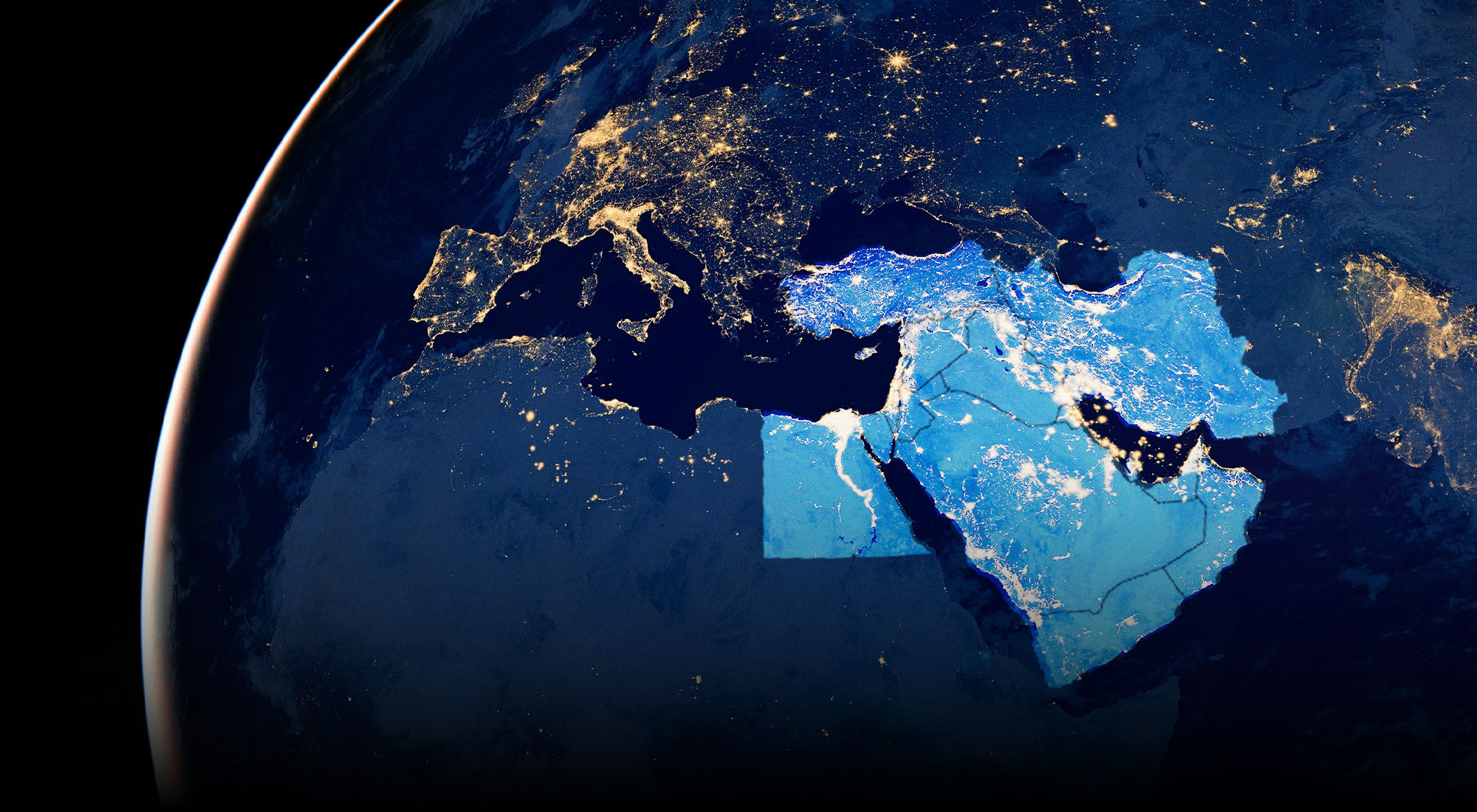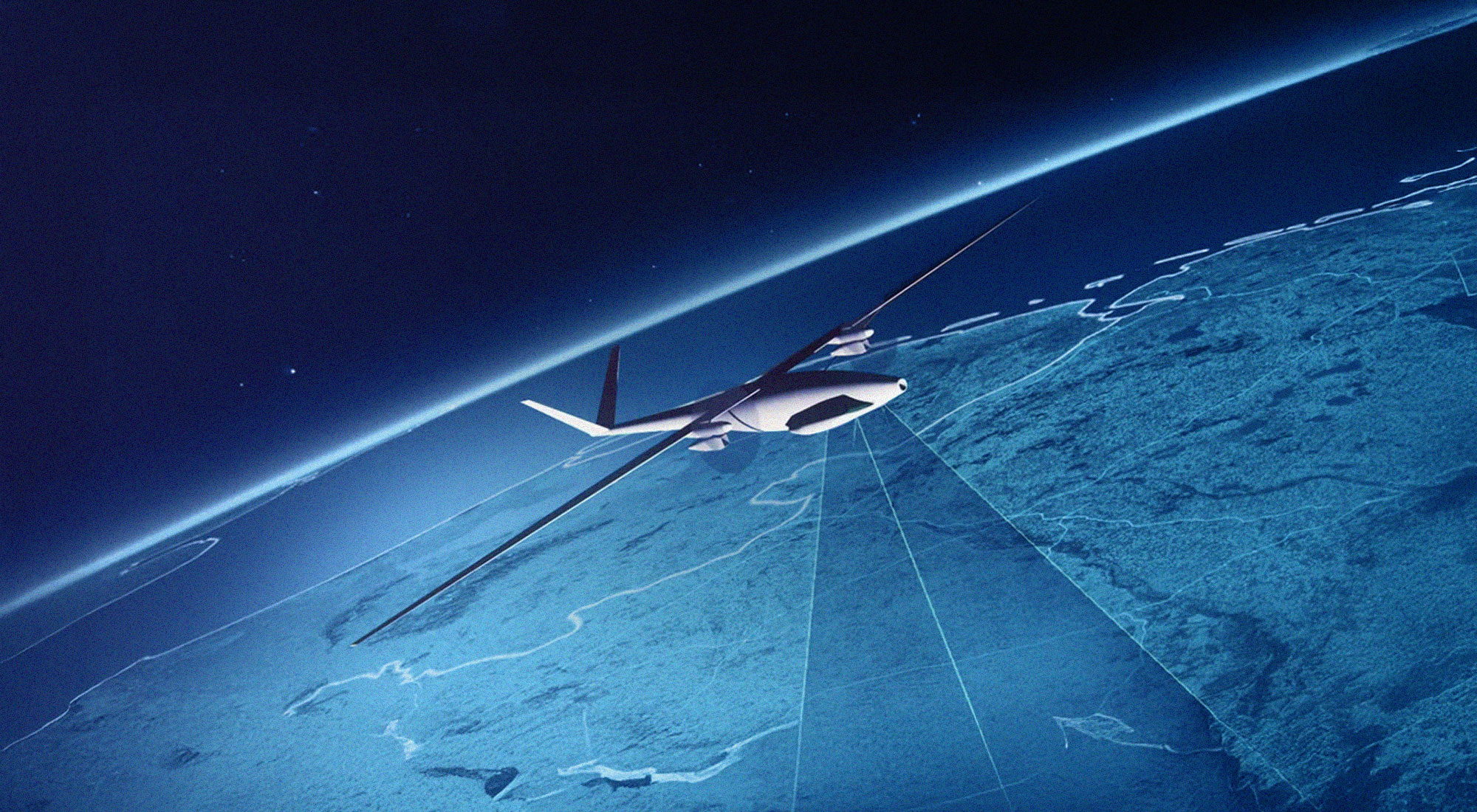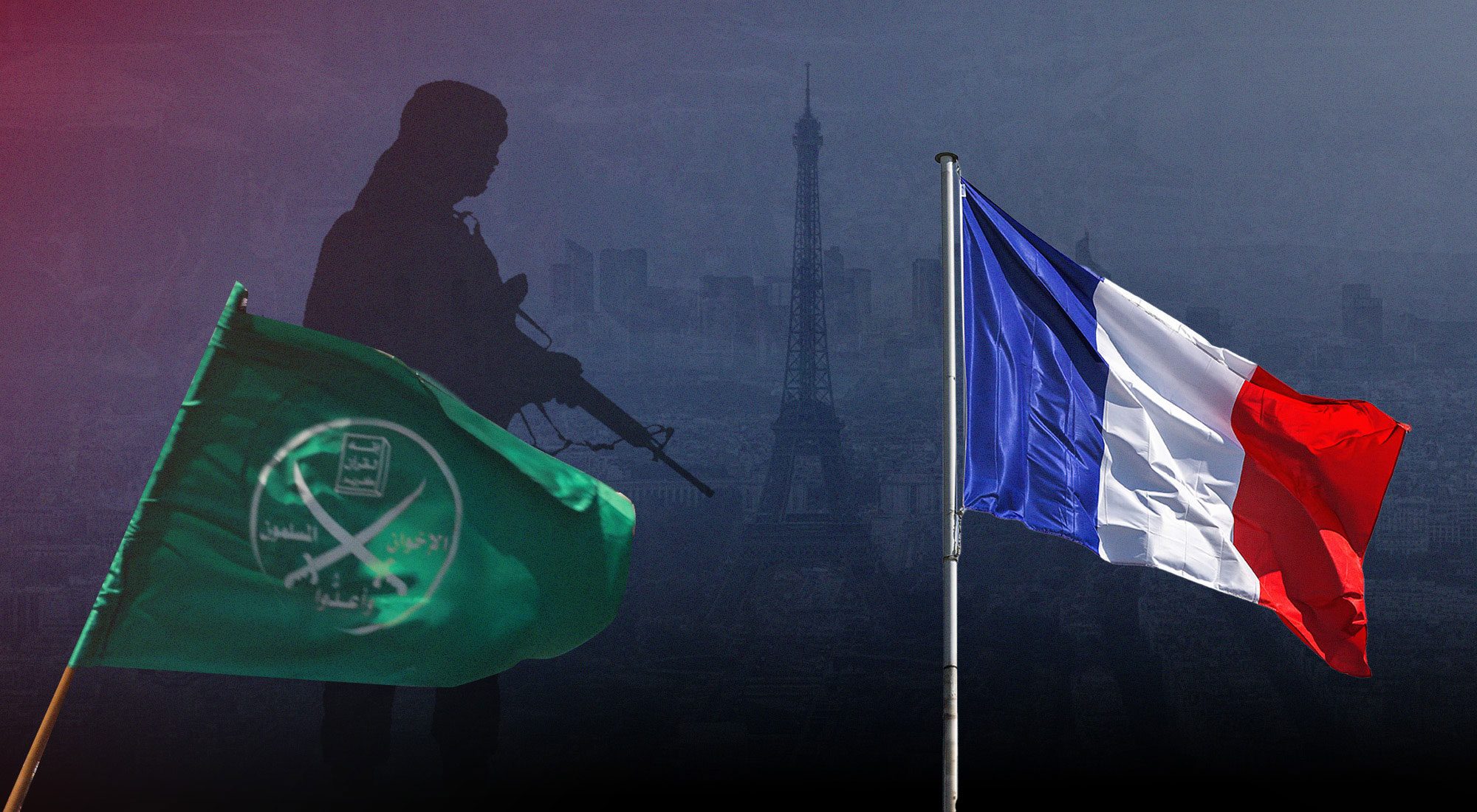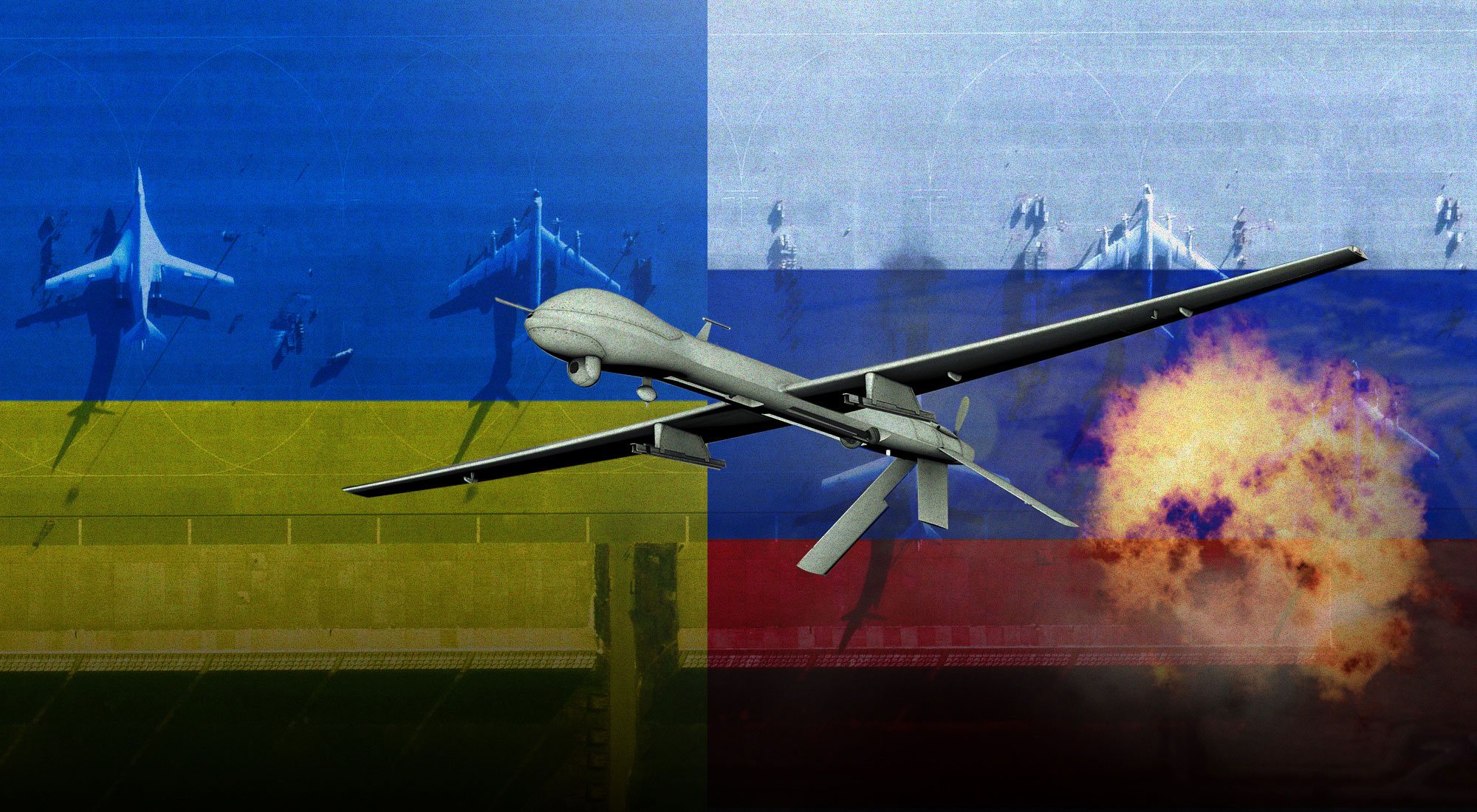Since the start of Russia’s military operation in Ukraine on 24 February 2022, speculation over the cost of this war for Moscow has been the topic of discussion among experts and scholars. The financial losses in the aftermath of Western sanctions, diplomatic isolation, military personnel casualties, and the severe damages to Russia’s war machine were the main objects of speculation. As the Russo-Ukrainian War escalated, so did the complexity of its dimensions. However, the long-term implications of the war for Russia appear to be even more perplexing. The complexity of these implications was heightened when, in mid-March 2022, several media outlets reported that Russia started to withdraw some of its troops from Syria, while also drawing thousands of fighters from the Syrian army and allied militias[1] to bolster the military operation in Ukraine and step up its offensive in the east of the country. Immediately after, Middle Eastern media outlets claimed that Iran would fill the vacuum of power created by the Russian withdrawal by increasing the presence of its troops and Shia militants in Syria.[2] This could shift the balance of influence in Syria in favor of Tehran.
Russia’s military operation in Ukraine has already started to affect Syria, so one might ask what the implications of Russia’s war in Ukraine would be for the Russia-Syria-Iran-Iraq (RSII) security coalition. This is a coalition that the Kremlin has been building in the Middle East with the help of Iran and its Shia allies. The Russo-Shia cooperation reached its peak in 2015, when the RSII security coalition, with two headquarters in Baghdad and Damascus, was officially formed.[3] The RSII coalition, since its formation, has been holding annual meetings in Baghdad to exchange intel and discuss recent regional developments, the last of which was held on February 25th, the day after Russia’s military operation in Ukraine.[4] However, since then, many things have changed. Russia’s recent gradual withdrawal from Syria, and the fact that the war in Ukraine might not result in Moscow’s favor, indicates that the Kremlin might have to shift its attention to deal with the growing escalation with NATO. Thus, it is very likely that Russia’s policy toward the Middle East and the RSII will change. In this context, Russia might choose to escalate tensions in the Middle East by sending Iran new advanced weapons that could potentially alter the balance of power in the region, or it might encourage Syria’s Assad to launch a new offensive against Turkish-backed rebels in the north or the US-backed SDF. Russia might find further escalation in the Middle East beneficial since it can force the West to divert its attention from Ukraine to the Middle East. Thus, it is vital to understand the implications of the Russo-Ukrainian War for the RSII coalition. To do so, we must first analyze the implications of the war individually for each member and then for the coalition as a whole.
Iran
The Russian aggression in Ukraine has both regional and international implications for Iran. On a global level, the war in Ukraine has affected negotiations between Iran and the P5+1 over the reimplementation of the JCPOA. On March 8th 2022, as negotiations were reaching a new peak, Russia’s Foreign Minister, Sergey Lavrov, made a surprise statement demanding assurance from the US that Washington’s growing sanctions on Russia over the war in Ukraine will not block Russia’s “trade and economic and investment cooperation and military-technical cooperation with Iran.”[5] Later, Russia’s ambassador to Iran, Levan Dzhagryan, stated that Iran owed Russia a large sum of money, and that it was reasonable for Russia to receive assurances that Iran’s payments would not be blocked by Western sanctions.[6] Eventually, on March 15th, Russia claimed that it had received “written guarantees” from the US that sanctions exempted Russo-Iranian cooperation.[7] However, Russia never published the written assurances, nor did the US ever verify such a claim. Despite what Russia officially stated as the root of its concern, to understand the logic of Russia’s behavior, we should keep in mind that next to Russia, Iran holds the largest gas reserves in the world and has a similar geographical distance to Europe. Thus, given Europe’s plans to phase out the import of gas from Russia,[8] it is natural for Moscow to be concerned about Iran’s return to the energy market following the reimplementation of the JCPOA. Russia’s concern is no secret. On March 7th, Vladimir Putin, in a government meeting, stated: “They are ready to make peace with Iran, [and] immediately sign all the documents (to renew the Iran nuclear deal).”[9]
Iran’s stance on Russia’s war in Ukraine only added to the already existing issues between Iran and the West.[10] The current disagreement between Iran and the West over the Russo-Ukrainian war will likely escalate, especially now that Western sources are claiming that Russia is obtaining weapons from Iraq via Iran-backed militias for its military campaign in Ukraine.[11]
On a regional level, the second Russo-Ukrainian war could potentially be an opportunity for Tehran. The war could create a rift between Russia and Israel, despite Israel’s efforts to remain seated on the fence. However, the increasing number of Ukrainian Jews fleeing to Israel has put Israeli officials in an uncomfortable position, driving many of them to take a stand against Russia, including Israel’s Foreign Minister, Arie Lapid, who condemned Russia’s aggression in Ukraine saying that the Kremlin’s decision had no “justification” and that “the ground [of Ukraine] is soaked with the blood of innocent civilians.”[12] Russia promptly responded to Lapid’s comment by summoning Israel’s ambassador and accusing Israel of using the war in Ukraine to “distract” international attention from the Palestinian issue.[13]
If the current Russo-Israeli conflict escalates further, Iran might find itself in an advantageous position with regard to the future of its military cooperation with Russia, especially since Israel, prior to these events, always played a central role in Moscow’s considerations when it came to arms deals with Iran. Prior to the Russo-Ukrainian war, at the request of Israel, Russia refrained, multiple times, from suppling Iran with offensive weapons that could disrupt the balance of power between Iran and Israel.[14] But now that events in Ukraine have shaken Russo-Israeli relations, it would be reasonable for Iran to hope that Russia has liberated itself from the “Israeli factor” with regard to Russo-Persian arms deals.
Another regional impact of the Russo-Ukraine war on Iran concerns Russo-Persian cooperation in Syria. Russia’s military focus in Ukraine has forced Moscow to withdraw a significant part of its forces from Syria.[15] The Russian withdrawal from Syria will create a vacuum of power which Iran has already started filling by deploying Iranian forces and Shia militias to replace Russian troops in Syria.[16] This would likely make the Assad regime more than ever dependent on Iran, which would give Iran the advantage of expanding its influence over Syria. Given that many, including US and British officials, believe that the Russo-Ukrainian war will drag on for years,[17] Assad once again might have to consider Iran as its major ally, which increases the political value of Iran for Syria.
The timing of this rising opportunity for Iran could not have been better. Many in Iran were worried that Russia, having secured major construction and investment agreements with Syria, was outpacing Iran in collecting the spoils of war in the post-civil war era.[18] However, now that Russia is gradually departing, the strategic value of Iran’s presence in Syria is growing, Tehran might find itself in a position to benefit from the Syrian regime by signing construction contracts or obtaining rights of exploration in Syria’s mineral mines and oil fields, which Iran has had its eyes on for a long time.[19] This would provide Iran with a window of opportunity to catch up with Russia in Syria and also to make-up for part of the financial resources expended by Iran during the Civil War.
Iran cannot take such an opportunity for granted as there are risk factors that could potentially endanger Iran’s position in Syria. We should keep in mind that in the absence of Russia’s mighty air force and its cruisers, including the sunken Moskva, which provided the pro-Assad forces with massive artillery and aerial bombardment support, the Syrian rebels in the north of Syria might take advantage of the situation and launch another offensive against Assad, and put both Iran’s influence and Assad’s regime at risk.
Generally speaking, the Russian military operation in Ukraine gives rise to complicated circumstances for Russo-Persian cooperation in Syria and for Syria itself, which brings us to the next section of this paper.
Syria
As previously mentioned, the most apparent impacts of the Russo-Ukrainian war on Syria have a security and military dimension. Even though today we can safely argue that Assad has regained control of two-thirds of his country, including most of the central, southern, and Mediterranean coastal regions,[20] and has successfully secured his political survival, this does not mean that the war in Syria is over; for as long as the war persists, the tide can still be turned. The timing of the Russians’ retreat from Syria is a very sensitive issue for Damascus as it comes at a time when US special operation forces based in Syria’s al-Tanf are still operative,[21] large areas of northern Syria are still occupied by Turkish Armed Forces,[22] and a coalition of nearly 100 thousand armed rebels under the leadership of the Syrian National Army and Syrian National Front for Liberation are still active.[23] Thus, Assad’s struggles to take back control of all territories and his need for foreign support are not over yet.
At this point, it seems that the only solution to the Russian pull-out for the pro-Assad coalition is to replace Russians with Iran-led forces. However, one can say that this solution has one major disadvantage: Iran’s lack of sufficient military capability to replace the Russian Air Force and Navy. Iran, indeed, has the resources to make up for the absence of Russian manpower, but the efficiency and primary function of Russia’s campaign in Syria has never been based on manpower. Russian forces barely participate in any battleground fights, and their operations have primarily been limited to aerial and naval bombardment. In fact, Russia’s navy and air force firepower was what pro-Assad forces needed to turn the tide of war[24] and recapture most of the areas that Assad lost prior to Russian military intervention in Syria in 2015.
In addition to Iran’s lack of capability to make up for the absence of Russia’s firepower, its endeavors to fill Russia’s place in Syria might provoke Israel, who has already bombed the positions of Iran-backed forces in Syria more than 200 times.[25] Russia’s heavy involvement in Ukraine combined with Iran’s growing presence in Syria might encourage Tel Aviv to increase its attacks on pro-Iran forces in Syria, which might lead to further escalation between Iran and Israel, resulting in the renewed destabilization of Syria.
The implications of the Russo-Ukrainian war for Syria are not just at the regional level; in fact, Syria could be severely impacted on an international level, especially given the current global climate in which the US is pressing its own allies, such as Israel,[26] to take a stronger stand against Russia. It is likely that the White House will apply harsher economic and diplomatic sanctions, which could include imposing a blockade or increasing its support for anti-government forces in countries within Russia’s sphere of influence, including Syria. Damascus would be a suitable target for the West since, relatively speaking, in comparison to Russia’s other spheres of influence, such as Belarus and Central Asian regimes, Syria is further away from Moscow, and thus would require a more substantial number of resources and efforts for Russia to counter the West there. In addition, in the last few years, the Kremlin’s propaganda machine has taken great pride in Russia’s military success in Syria.[27] Hence the change of status quo in Syria would be a severe blow to Kremlin’s military prestige. However, we should keep in mind that targeting Syria is a perilous choice and likely would result in the destabilization of Syria, which could spur the re-emergence of terrorist groups, as was the case with ISIS in 2014.
Overall, it seems that in comparison to Iran, Syria is likely to face harsher consequences, and only time will tell how the Kremlin’s war in Ukraine will reshape Assad’s destiny in Syria.
Iraq
Among the members of RSII, Iraq is the one that should be the least concerned about the implications of the Russo-Ukrainian conflict. In fact, Iraq can be considered as one of the unintended benefactors of Russia’s war in Ukraine. The Russo-Ukrainian war has driven oil prices to their highest levels in almost a decade, with Iraq recording its highest revenue from oil exports in the last fifty years.[28] In addition, as the Russo-Ukrainian war is one of the factors that have impacted negotiations over the reimplementation of the JCPOA, the speculation around the return of Iran as Iraq’s traditional competitor in the energy market does not sound as promising as it used to. Thus, one can argue that, financially speaking, the situation could not be better for Iraq, since the future of both Iran, which holds 9.5 % of world oil reserves, and Russia, with 4.8 % of global reserves,[29] is no longer clear. This has provided Iraq with a great opportunity to widen its position in the energy market. Iraq’s strategic advantage has been further boosted by the decision of Saudi Arabia and the United Arab Emirates not to increase their oil exports.[30]
Despite all the strategic financial advantages that Iraq has gained from Russia’s military operation in Ukraine, there is a potential negative side-effect that might strike Iraq: the probability that the West, and specifically the United States, will shift its attention from the Middle East to Ukraine and the rest of eastern Europe. The lack of Western attention might lead to Iraq’s neighbors, including Iran and Turkey, attempting to expand their influence over Iraq; in this context, one might argue that Turkey’s current aerial and artillery bombardment of Kurdish positions in northern Iraq is not purely fortuitous. In addition, the lack of the West’s engagement in Iraq might encourage terrorist groups such as ISIS to launch new attacks against the central government, which could destabilize Iraq. However, we also need to keep in mind that the probable decline in the role of Iran and Russia in the oil market could make Iraq invaluable to Western nations, so much so that they let Baghdad fall into anyone’s hands but the Iraqis.
Conclusion
In establishing a cost-benefit analysis (CBS) of the association between the depth of RSII members’ ties with Russia and the implications of the Russo-Ukrainian war for them, we should understand that as the importance of Russia for them grows, they are likely to lose more. For instance, Syria is heavily dependent on Moscow’s military support; thus, for Damascus, Russia is a “source of power,” and so a “conflicted Russia” poses a high level of threat for Syria. In this context, given Iraq’s friendly relations with both the West and Russia, Baghdad is in a safe spot, and Russia’s struggles will have a lesser impact on Iraqis since they have an “alternative source of support.” Iran is somewhere in the middle since Iran is not dependent on Syria, or Russia, or Iraq, for international support; thus, depending on Tehran’s future decisions, Iran could be in either “damage-control” or “limited-benefactor” mode.
To summarize, among non-Russian members of the Russia-Syria-Iraq-Iran security coalition, Iraq is the one who gains the most and loses the least; Syria is the one that yields the most and makes the least; and finally, Iran is somewhere in-between with an equal chance of “moderate” loss or gain. Regarding the future of the Russia-Syria-Iran-Iraq coalition, we could say that, to a significant extent, the future of the coalition depends on Russia’s position in the post-Ukraine war era. If, in the post-war era, the Kremlin seeks de-escalation with the West, we can safely argue that Moscow will try not to open a new frontline between itself and the West in the Middle East. However, an overconfident or humiliated Russia would likely choose the Middle East as a new battlefield to counter the West. An overconfident Russia would see the West as too fragile to confront its might, and a humiliated Russia would seek a place to avenge itself and reclaim its pride, and nowhere could be a better place than the Middle East, where the West has not historically had the upper hand.
References
[1] “Russia Is Drafting Thousands in Syria for the Ukraine War,” France 24, March 15, 2022, https://www.france24.com/en/live-news/20220315-russia-drafting-thousands-in-syria-for-ukraine-war-monitor.
[2] “Ukraine Fallout: Is Iran Gaining the Upper Hand over Russia in Syria?” TRT World, March 22, 2022, https://www.trtworld.com/magazine/ukraine-fallout-is-iran-gaining-the-upper-hand-over-russia-in-syria-55721.
[3] Laila Bassam and Tom Perry, “How Iranian General Plotted Out Syrian Assault in Moscow,” Reuters, October 6, 2015, https://www.reuters.com/article/us-mideast-crisis-syria-soleimani-insigh-idUSKCN0S02BV20151006.
[4] Marzieh Rahmani, “Baghdad Hosts Security Iran-Iraq-Syria-Russia Summit,” Mehrnews, February 25, 2022,
https://en.mehrnews.com/news/184281/Baghdad-hosts-security-Iran-Iraq-Syria-Russia-summit.
[5] Steven Erlanger, “Iran Nuclear Deal Nears Completion, But Russia Poses Complication,” New York Times, March 8, 2022, https://www.nytimes.com/2022/03/08/world/europe/iran-nuclear-deal-russia-ukraine.html.
[6] “We Are Afraid of No One, We Are a Nuclear Power,” Eternad, March 16, 2022, https://bit.ly/3MiIlzD.
[7] Parisa Hafezi, Humeyra Pamuk and Simon Lewis, “Russia Says It Has Written Guarantees on Iran Nuclear Deal,” Reuters, March 16, 2022, https://www.reuters.com/world/middle-east/russia-says-it-has-written-guarantees-iran-nuclear-deal-2022-03-15/.
[8] “European Leaders Wary of Cutting Off Russian Oil and Gas,” Deutsche Welle, March 7, 2022, https://www.dw.com/en/european-leaders-wary-of-cutting-off-russian-oil-and-gas/a-61045570.
[9] “Putin: US Trying to Reconcile with Iran and Venezuela to Counter Russia,” Iran Front Page, March 11, 2022, https://ifpnews.com/putin-us-trying-to-reconcile-with-iran-and-venezuela-to-counter-russia/.
[10] Kourosh Ziabari, “In Backing Russia on Ukraine, Iran Is on the Wrong Side of History,” Foreign Policy, March 9, 2022, https://foreignpolicy.com/2022/03/09/iran-support-russia-war-ukraine/.
[11] Inder Sing Bisht, “Russia Using Weapons in Ukraine Smuggled by Iranian Militia: Report,” The Defense Post, April 20, 2022, https://www.thedefensepost.com/2022/04/20/russia-weapons-smuggled-iran/.
[12] “Russia Summons Israeli Ambassador after Lapid Condemns Invasion,” i24 News, April 17, 2022,
[13] “Russia Says Israel Using Ukraine Invasion as ‘Distraction’ From Palestinian Issue,” Haaretz, April 16, 2022, https://www.haaretz.com/israel-news/russia-says-lapid-using-ukraine-invasion-as-distraction-from-palestinian-issue-1.10745497.
[14] “Russia Nixed Arms Sales to Israel’s Enemies at Its Request, PM’s Adviser Says,” The Times of Israel, November 2, 2019, https://www.timesofisrael.com/russia-nixed-arms-sales-to-israels-enemies-at-its-request-pms-adviser-says/.
[15] Karoun Demirjian, “Russia Begins to Mobilize Military Reinforcement for Ukraine as Casualties Mount, Pentagon Says,” Washington Post, March 25, 2022, https://www.washingtonpost.com/national-security/2022/03/25/russia-reinforcements-georgia-ukraine/.
[16] Jennifer Cafarella, Ezgi Yazici and Zach Cole, “Russia Mobilizes Reinforcements From Syria and Africa To Ukraine,” Institute for the Study of War, March 31, 2022, https://www.understandingwar.org/backgrounder/russia-mobilizes-reinforcements-syria-and-africa-ukraine.
[17] Peter Weber, “U.S and Britain Reportedly Believe the Ukraine War Could Last 10-20 Years, Become a Russian Quagmire,” The Week, March 2, 2022, https://theweek.com/russo-ukrainian-war/1010797/us-and-britain-reportedly-believe-the-ukraine-war-could-last-10-20.
[18] Sarah Dadouch, “After Backing Assad, Iran and Russia Compete for Influence,” Washington Post, May 20, 2021, https://wapo.st/3MjJdUq.
[19] Ali Alfoneh, “Iran Eyes Share in Syria’s Reconstruction,” The Arab Weekly, February 10, 2019, https://thearabweekly.com/iran-eyes-share-syrias-reconstruction.
[20] Fabrice Balanche, “The Assad Regime Has Failed to Restore Full Sovereignty over Syria,” The Washington Institute for Near East Policy, February 10, 2021, https://www.washingtoninstitute.org/policy-analysis/assad-regime-has-failed-restore-full-sovereignty-over-syria.
[21] Grant Rumley and David Schenker, “The Future of Al-Tanf Garrison in Syria,” The Washington Institute for Near East Policy, December 6, 2021, https://www.washingtoninstitute.org/policy-analysis/future-al-tanf-garrison-syria.
[22] Ceasefire Centre for Civilian Rights, Cultivating Chaos: Afrin after Operation Olive Branch, July 2020, https://www.ceasefire.org/wp-content/uploads/2020/07/CFR_Syria_EN_July20.pdf.
[23] Zulfiqar Ali, “Syria: Who’s in Control of Idlib?” BBC News, February 18, 2020, https://www.bbc.com/news/world-45401474.
[24] Nicole Grajewski, “The Evolution of Russian and Iranian Cooperation in Syria,” Center for Strategic and International Studies, November 17, 2021, https://www.csis.org/analysis/evolution-russian-and-iranian-cooperation-syria.
[25] “Israel Says It Launched 200 Strikes in Syria since 2017,” Al Jazeera, September 5, 2018, https://www.aljazeera.com/news/2018/9/5/israel-says-it-launched-200-strikes-in-syria-since-2017.
[26] James M. Dorsey, “Israel Facing Mounting Pressure to Pick a Side in Russia-Ukraine War,” Responsible Statecraft, April 23, 2022, https://responsiblestatecraft.org/2022/04/23/israel-facing-mounting-pressure-to-pick-a-side-in-russia-ukraine-war/.
[27] Shaun Walker, “Syrian Mission Restores Pride in the Russian Military after Years of Decay,” The Guardian, March 15, 2016, https://www.theguardian.com/world/2016/mar/15/syrian-mission-restores-pride-in-russian-military-after-years-of-decay.
[28] Chenar Chalak, “Iraq Reports Record High Oil Revenue since 1972,” The Rudaw, April 2, 2022, https://www.rudaw.net/english/middleeast/iraq/02042022.
[29] Worldometer, Oil Reserves by Country, https://www.worldometers.info/oil/oil-reserves-by-country/.
[30] Maha El Dahan, Riham Alkousaa and Yousef Saba, “UAE, Saudi Say OPEC+ Should Not Play Politics,” Reuters, March 29, 2022, https://www.reuters.com/business/world-economy-will-be-hit-if-oil-supplies-are-threatened-saudi-energy-minister-2022-03-29/.








